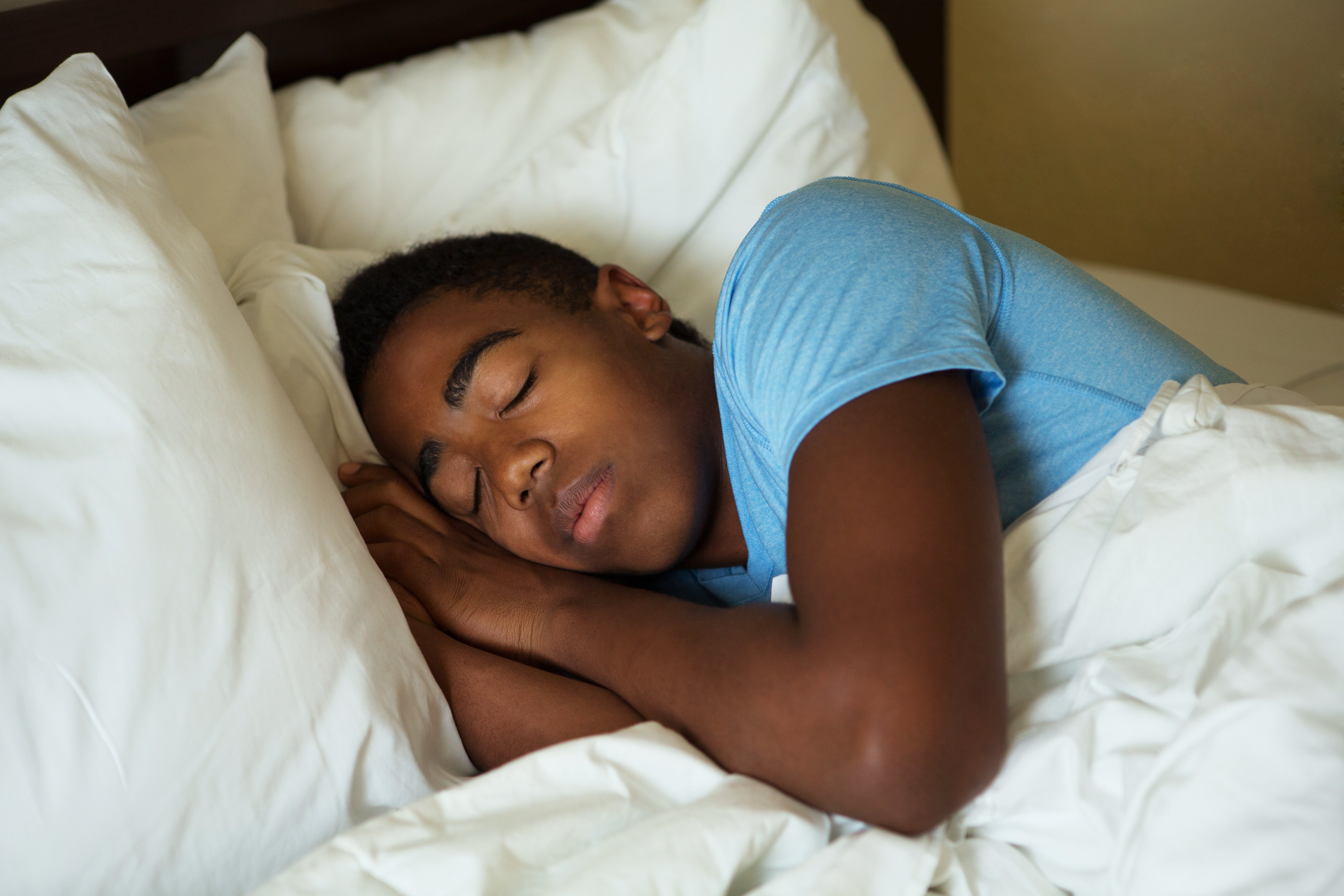
Written by Allison Ong, M.D., Oneith Cadiz, M.D., Lyse Deus, M.Ed., and Taylor Rosenbaum, M.D., M.A. injuryfreemiami.org.
The hour is late. You’ve tucked your toddlers into bed, cleaned the kitchen, and turned off the TV.
You’re ready to sleep when… you notice your teen’s bedroom light is on. Should they be awake at this hour? How can you promote good sleep habits? When should you talk to teens about sleep? We’ll help you rest easy with answers to these questions.
How much sleep do teens need and why?
Teens need at least 8 to 10 hours of sleep each night, according to the American Academy of Pediatrics. Unfortunately, studies suggest only 1 in 4 teens meet those numbers. Sleep has many benefits for teens:
- Healthier immune system
Sleep allows the body to rest, recharge, and strengthen the immune system. This helps teens fight infections and catch fewer illnesses.
2. Improved school performance
Sleep impacts concentration, memory, creativity, and processing speed. A teen who stays up late doing homework or studying for a test may actually be harming their ability to do well in school the next day.
3. Muscle recovery
Sleep is especially important for student athletes! The body repairs muscles during sleep. A stressed and sleep-deprived athlete will take longer to recover from injuries.
4. Better mental health
Adequate sleep reduces anxiety, depression, and irritability.
5. Safety and alertness
Sleep deprivation increases the risks of drowsy driving, physical accidents, and sports injury.
What are symptoms of sleep problems in teens?
If you think your teen is not getting enough sleep, look for the signs below. These signs can help you start a conversation with your teen and their pediatrician.
- Difficulty remembering things
- Zoning out
- Falling asleep in locations other than the bedroom (i.e. kitchen table)
- Declining grades
- Oversleeping/missing morning alarms
- Irritability
There are different medical reasons why your teen might be having trouble sleeping. We suggest talking to your pediatrician if your teenager snores, wakes up short of breath, cannot fall asleep, or cannot stay asleep. They may need additional tests to figure out what is going on.
How can my family sleep better?
With help from your pediatrician, your family can build healthier sleep routines together! Here are our top tips for better zzz’s:
- Reduce stress, anxiety, and screen time in the evening. Skip scary movies, video games, and upsetting news shows prior to bed. Avoid screens in general for at least 1 hour before bedtime.
- Set a good example. Parents should try their best not to stay up late watching TV or doing work on school nights. This teaches teens that these tasks are more important than a good night’s sleep.
- Create a comfortable sleep environment. Turn off all lights in your teen’s room, including the RGB LED lights or neon lights that are popular with teen decor. If you can, reduce the temperature of your home. Encourage your teen to wear socks to bed since warming the feet has been shown to draw blood away from the body’s core, causing faster onset of sleep.
- Watch what you eat at night. Avoid caffeine 4 to 6 hours before bed, heavy and spicy foods 4 hours before bed, and strenuous exercise 2 hours before bed. A protein-rich snack (i.e. egg or nuts) may be okay if they are hungry within this time.
- Practice a consistent routine. Ask your teen how they wind down for bed. Do they incorporate a face wash, journaling, or picking their clothes out for the next day?
Ask your pediatrician for any concerns you have about your teen’s sleep. Talk to your doctor before giving your teen any over the counter vitamins or supplements for sleep. Together, your teen can be better rested and ready to take on the day.
For more information about safe sleep for adolescents, call the Injury Free Coalition for Kids, a program of Jackson Hospital and University of Miami Funded by the Children’s Trust at 305-243-9080 or visit www.injuryfree.org.